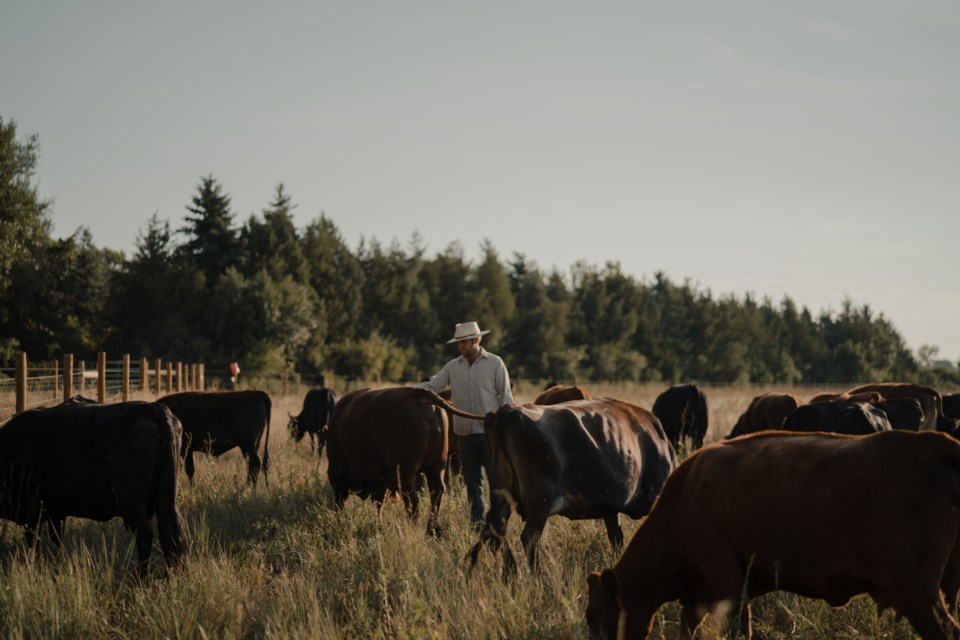A program started by Boulder County funding regenerative agriculture practices is expanding across the state following a successful pilot phase.
In 2020, Boulder County received a grant from the U.S. Department of Agriculture to launch the Restore Colorado grant program in partnership with Zero Footprint and Mad Agriculture. Food businesses were able to sign up to become Zero Foodprint members, collecting a 1% fee from customer meals to go toward Restore Colorado Grants.
Zero Foodprint has recently signed a memorandum of understanding with Colorado's Department of Agriculture to expand the program across the state, with up to $200,000 to be distributed to Colorado farmers and ranchers this year.
“This partnership is a shining example of how local governments can supercharge climate action by piloting innovative programs that can scale and be replicated across the country,” Boulder County Sustainability, Climate Action and Resilience Director Susie Strife said. “These Colorado restaurants and farmers are proving that powerful climate solutions come from making connections — connecting people and communities to the land as well as the farmers and ranchers producing food in their backyards.”
Restore Colorado Grants fund projects that fight the climate crisis by improving soil health and sequestering carbon on local farms and ranches. To date, more than 30 Colorado businesses have raised $305,000 to fund Restore Colorado Grants.
“The launch of Restore Colorado demonstrates the plausibility and scalability of public-private collaborations to scale natural climate solutions,” Zero Foodprint Co-founder and Executive Director Anthony Myint said. “Even against the backdrop of the pandemic, Colorado businesses and their customers have come together to support their local farmers and ranchers in building healthy soil and restore the climate one dollar and one acre at a time.”
As of this month, 11 farms and ranches in Boulder County and across the Front Range have received Restore Colorado grants to implement regenerative practices that include compost application, cover cropping and planting flowering shrubs for native pollinators.
According to Boulder County, these projects are estimated to have sequestered 4,118 metric tons of carbon dioxide — equivalent to the carbon created by the annual energy usage of 801 American homes.
Recipients include Boulder Valley Honey, Drylands Agroecology Research, Emerald Gardens, Esoterra Culinary, Frontline Farming, Grama Grass and Livestock, Longtable Farmstead, McCauley Family Farm, Olander Farms, Speedwell Farm and Garden and Switch Gears Farm.
“Restaurants are such a big part of the food system and by becoming a member of the Zero Foodprint program we can all do our part to help fight the climate crisis and be the change,” said Dana Faulk Query, Zero Foodprint board member and co-owner of the Big Ref F Restaurant Group in Boulder. “Colorado is truly a leader when it comes to sustainability, and we are so proud to be part of promoting the new future of food.”
Foodprint is now accepting grant applications from Boulder County and Colorado farmers and ranches. Grants support the implementation of carbon farming practices by providing grantees up to $25,000 for projects that sequester carbon and up to $200,000 will be awarded.
Applications will be accepted through July 20 and recipients will be announced at the end of August. More information is available at zerofoodprint.org/apply.


